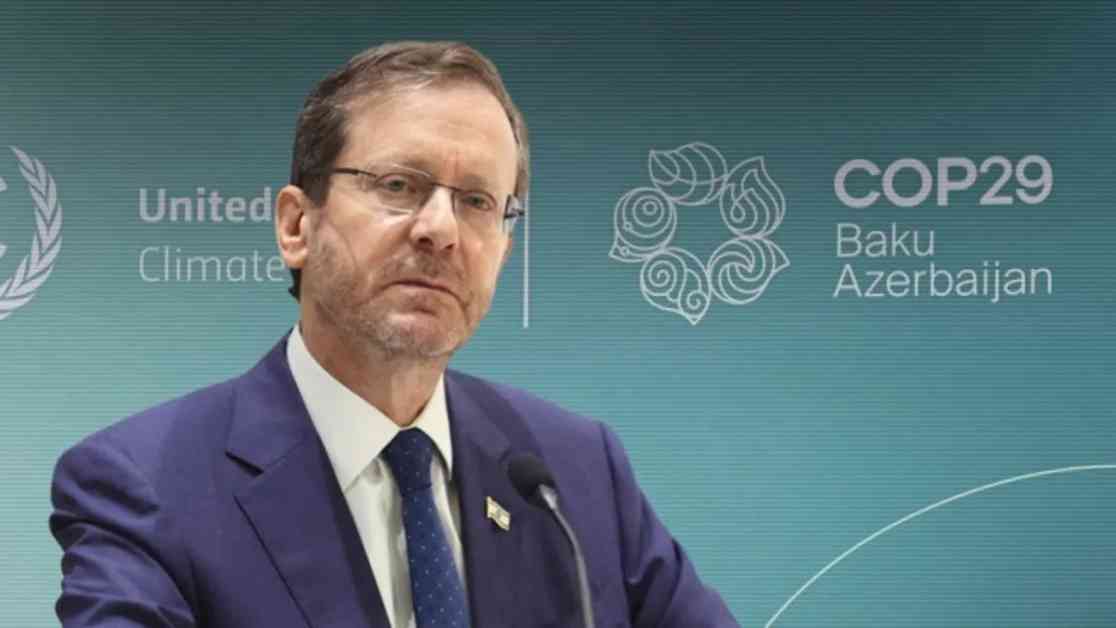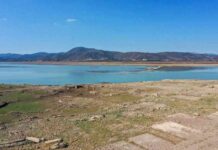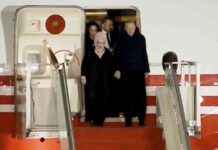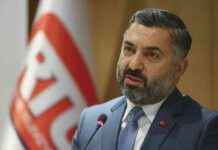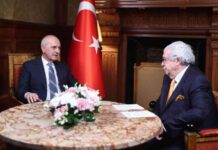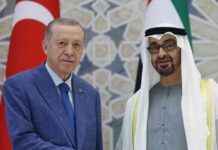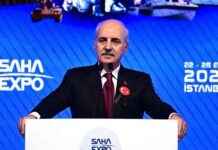Turkey’s Ankara Denies Airspace Access for COP 29: Israel’s President Herzog Barred from Turkey’s Skies
Israeli President Isaac Herzog’s planned attendance at the United Nations COP29 Climate Conference in the Azerbaijani capital, Baku, has been canceled. Israel cited ‘security reasons’ for the cancellation, but it has come to light that the real reason was Turkey’s refusal to grant approval for overflight in its airspace.
President Herzog, known for his involvement in human rights violations in Palestine, intended to fly over Turkey to reach Baku for the COP29 conference taking place from November 11-24, 2024.
Ankara denied access to its airspace, leading to President Erdogan addressing COP29, condemning Israel’s actions. Erdogan stated, “The current government continues to massacre people regardless of age, gender, or status, causing a massive environmental devastation. The chemicals seeping into the land and underground waters due to Israeli attacks have already cast a shadow over the future of Gazan children. We believe those responsible for this grave humanitarian and environmental disaster must be held accountable in international courts.”
Azerbaijan, hosting COP29 with thousands of participants and hundreds of world leaders expected to arrive, is implementing stringent security measures. Despite this, Israeli authorities claimed their non-attendance was due to security concerns.
The denial of airspace access by Turkey has raised questions about the implications and motivations behind such a decision. The move has sparked discussions about the role of countries in international events and the importance of upholding human rights standards.
Turkey’s Stance on COP29
Turkey’s decision to block President Herzog’s overflight request for the COP29 conference has drawn attention to the country’s stance on human rights and environmental issues. By denying access to its airspace, Turkey has sent a strong message regarding its position on countries involved in violations of international laws.
President Erdogan’s speech at COP29 highlighted Turkey’s commitment to holding accountable those responsible for human rights abuses and environmental degradation. The refusal to allow President Herzog to pass through Turkish airspace underscores Turkey’s dedication to upholding principles of justice and accountability on the global stage.
Implications for Israel-Turkey Relations
The denial of airspace access for President Herzog has the potential to strain relations between Israel and Turkey. This incident sheds light on the underlying tensions between the two countries, particularly concerning human rights abuses and environmental issues.
Israel’s reaction to Turkey’s decision will be closely monitored, as it may impact future diplomatic engagements and cooperation between the two nations. The implications of this incident extend beyond the COP29 conference, highlighting the broader geopolitical dynamics at play in the region.
International Community’s Response
The international community’s response to Turkey’s denial of airspace access for COP29 has been mixed. While some have commended Turkey for taking a stand against human rights violations, others have raised concerns about the potential consequences of such actions on diplomatic relations.
Calls for a unified approach to addressing human rights abuses and environmental concerns have been reiterated in light of this incident. The need for countries to prioritize ethical considerations in their foreign policy decisions has been underscored, with the hope of fostering a more just and sustainable global order.
In conclusion, Turkey’s denial of airspace access for COP29 has sparked discussions on human rights, environmental issues, and diplomatic relations. The incident serves as a reminder of the importance of upholding ethical principles in international affairs and the need for countries to be held accountable for their actions on the global stage.

